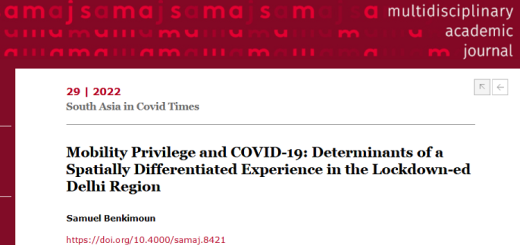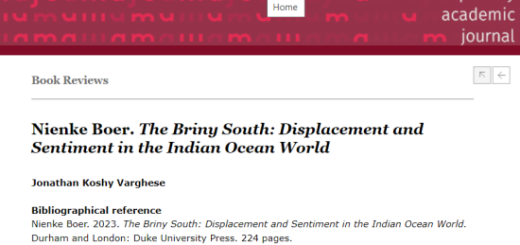[CSH-CPR Urban Workshop #160] City as Territory: Spatializing Majoritarianism in Twentieth-century Calcutta (R. Bandyopadhyay)
The Centre de Sciences Humaines (CSH) & Centre for Policy Research (CPR)
are pleased to invite you to an Online Urban Workshop (n°160)
by
Ritajyoti BANDYOPADHYAY
(Assistant Prof. in History & Political Economy, Indian Institute of Science Education and Research, Mohali)
on
City as Territory: Spatializing Majoritarianism in Twentieth-century Calcutta
on
Tuesday, 27 June 2023, at 3:45 pm IST onwards
The session will be online over ZOOM, to register kindly fill out THIS FORM
The session will also be live-streamed on the CPR Facebook page.
In case of any issues and for queries, please email: urbanization@cprindia.org
About talk:
Throughout its colonial history, Calcutta had been a Hindu-majority city in the heart of a Muslim-majority province. Until the mid-twentieth century, despite bitter rivalry, the city’s Hindu and Muslim populations inhabited shared spaces, even in areas populated chiefly by members of one community. However, the city’s character began to transform slowly in the interwar decades due to the twin effects of urban renewal and communal mobilization, culminating in an utter territorial defeat of Muslims in the mid-twentieth century. One of the outcomes of this was ghetto formation in the city’s margins.
Extending the research presented in Chapters 2 and 3 of the author’s recently published monograph: Streets in Motion: The Making of Infrastructure, Property, and Political Culture in Twentieth-century Calcutta, this talk will look at how the police as an apparatus of public order ‘read’ the city as a communally divided territory in moments of civil unrest, and demonstrates how the cop–mob dialectic redrew, reinforced, and refunctioned the internal boundaries of the city. In this negotiation between the police and the mob, the street emerged as a territory and a zoning device and simultaneously shaped the tactics and the outcome of this urban warfare. By examining the police evidence of a series of communal occurrences spanning the first half of the twentieth century, the talk will track social infrastructures and various forms of mass politics that further enforced the territorial reordering of Calcutta in the first half of the century. Finally, the talk will analyse the implications of these zoning exercises for the emergence of an internally segregated city in the post-colonial period, emphasising the street and the ghetto as two distinct configurations of territory.
Speaker:
 Ritajyoti Bandyopadhyay teaches History and Political Economy at the Indian Institute of Science Education and Research, Mohali. He is also with the M.S. Merian – R. Tagore International Centre of Advanced Studies ‘Metamorphoses of the Political’ (ICAS:MP). He is the author of Streets in Motion: The Making of Infrastructure, Property and Political Culture in Twentieth-century Calcutta, Cambridge: Cambridge University Press, 2022. His work has explored themes in informality, infrastructure technologies, urban history and governmentality studies in late-colonial and postcolonial India.
Ritajyoti Bandyopadhyay teaches History and Political Economy at the Indian Institute of Science Education and Research, Mohali. He is also with the M.S. Merian – R. Tagore International Centre of Advanced Studies ‘Metamorphoses of the Political’ (ICAS:MP). He is the author of Streets in Motion: The Making of Infrastructure, Property and Political Culture in Twentieth-century Calcutta, Cambridge: Cambridge University Press, 2022. His work has explored themes in informality, infrastructure technologies, urban history and governmentality studies in late-colonial and postcolonial India.
This is the hundred and sixty (160) in a series of Urban Workshops planned by the Centre de Sciences Humaines (CSH), New Delhi and Centre for Policy Research (CPR). These workshops seek to provoke public discussion on issues relating to the development of the city and try to address all its facets including its administration, culture, economy, society and politics. For further information, please contact: Stéphanie Tawa Lama of CSH at tawalama@ehess.fr, Mukta Naik at mukta@cprindia.org or Marie-Hélène Zerah at marie-helene.zerah@ird.fr









